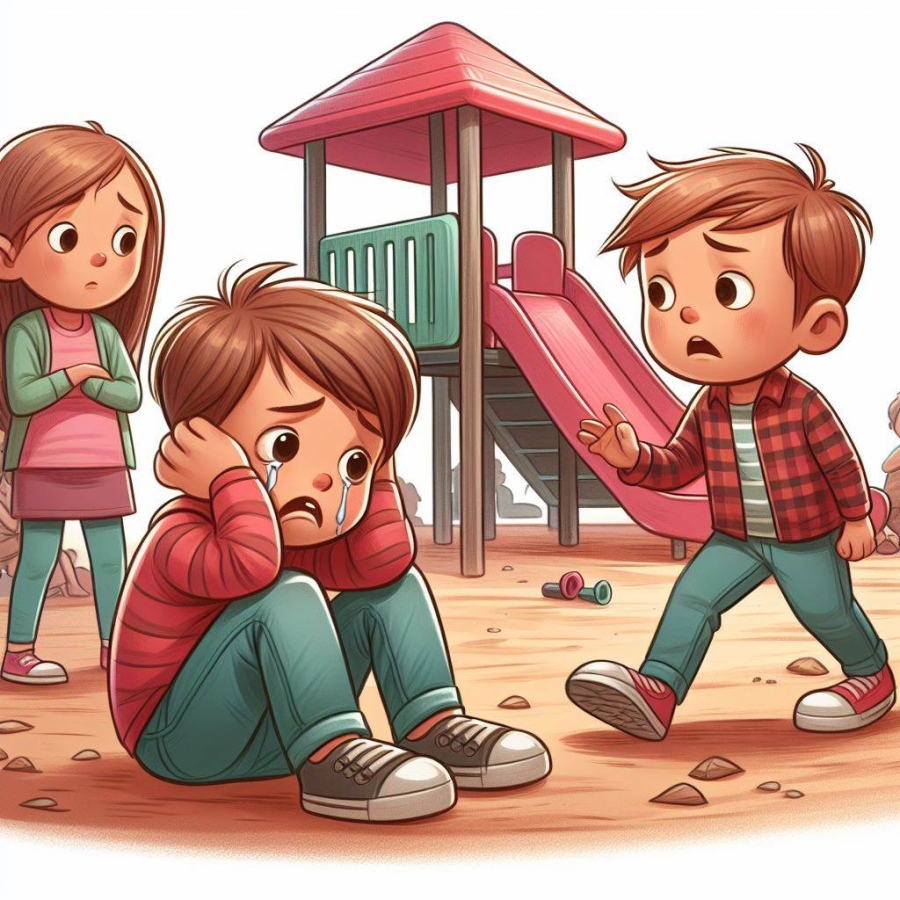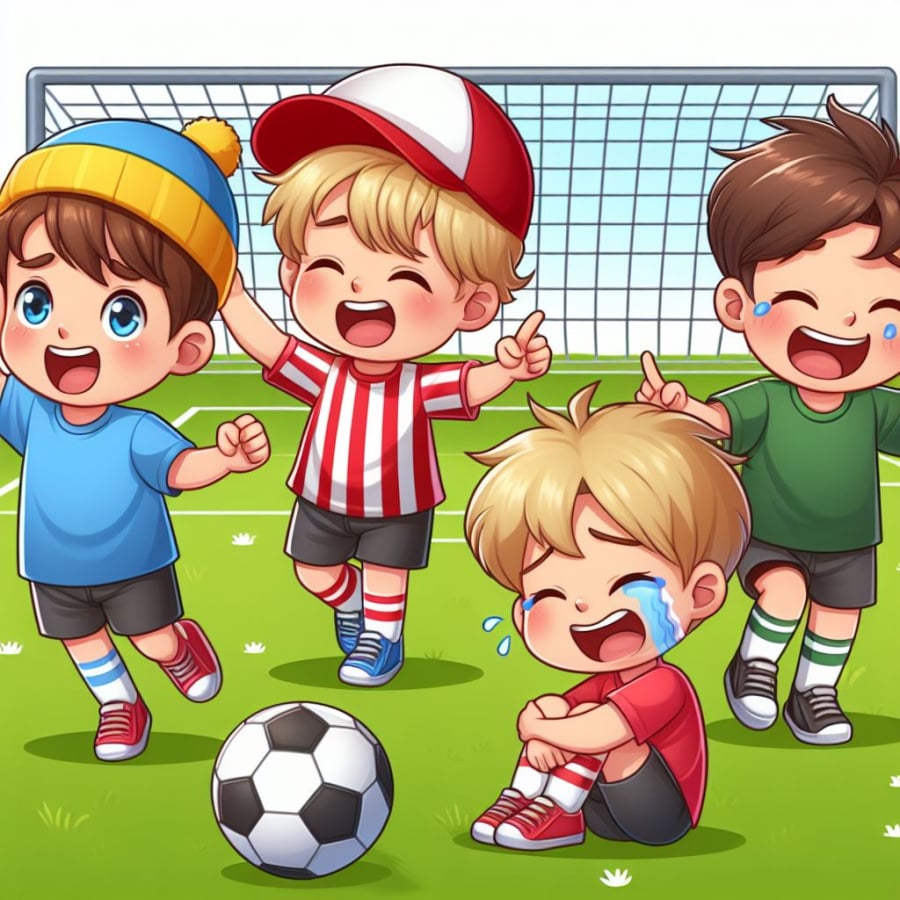Developing Positive and Healthy Relationships in Children
The development of positive and supportive relationships early in life is essential. However, in the process, children may sometimes encounter friends who have a negative influence. The ability to identify and choose the right friends can significantly impact a child’s quality of life in the long run.
Specifically, if a child’s friend exhibits any of the following undesirable traits, parents should encourage them to minimize that relationship and focus on fostering a healthier social environment around themselves.
Encourages Dangerous Behavior and Finds It Humorous
These types of friends often thrive on selfishness, enjoying causing harm and ridicule to others. This is especially dangerous for children, who are not yet emotionally mature and may not be able to clearly distinguish between right and wrong. Exposure to such friends can have major detrimental effects.
They may encourage risky activities or engage in unsafe pranks, deriving pleasure from inducing anxiety in others.
Relationships with such individuals can lead to injury, emotional turmoil, and negatively impact a child’s developing character.

Relationships with such individuals can lead to injury, emotional turmoil, and negatively impact a child’s developing character
Constantly Makes Jokes That Lower Self-Esteem
Negative friends can not only inflict harm and ridicule but can also damage a child’s self-worth. They frequently use hurtful language and mocking humor, creating an environment of stress and eroding a child’s confidence.
Children become anxious when faced with malicious remarks and mockery, such as criticism about their appearance, abilities, or personal characteristics. This can lead them to doubt their self-worth and feel unworthy of love.
Moreover, toxic friends often engage in teasing or pushing children into compromising situations. Children risk physical and emotional harm, leading to a further loss of self-esteem as they participate in peer activities or navigate everyday social interactions.

Toxic friends often engage in teasing or pushing children into compromising situations
Uses “Good Friendship” to Control
Research from China has suggested that children involved in unhealthy friendships are more likely to engage in delinquent activities, including theft, violence, or substance use.
Children often feel immense pressure from negative peer groups and may feel compelled to do things to gain acceptance. As a result, they can be drawn into harmful actions and potentially break the law.
In the guise of being a “good friend,” a toxic friend may issue thinly veiled threats in order to keep the friendship or avoid confrontation. This can begin with intimidation, controlling behaviors, and using the child for personal gain. A common phrase is, “If you don’t do this, no one will play with you.”
It is therefore crucial for children to learn to recognize and reject toxic friendships, and to establish boundaries and self-advocacy against negative peer pressure.
Spreads Friends’ Secrets
The prevalence of casually circulating personal information has become a concerning issue in society. If parents discover their child befriending individuals who habitually disclose and spread others’ secrets, they should encourage them to minimize contact with such peers.
Firstly, this behavior harms the person whose information is shared, eroding their trust and social connections. Betrayal of confidences is not only an invasion of privacy and trust but also leads to a loss of respect and credibility from others.
Furthermore, it creates an atmosphere of distrust and insecurity, leading to anxiety and fear in children about sharing their own personal information.
Additionally, personal secrets often include sensitive details related to personal life, family situations, or work. Their disclosure can lead to violations of a child’s privacy, damage their reputation, and potentially expose them to criticism from those around them.
When children take on the role of spreading sensitive information, they can quickly become the focus of blame and negative comments.

When children take on the role of spreading sensitive information, they can quickly become the focus of blame and negative comments
Shifts Blame When Things Go Wrong
True friends stand by each other through thick and thin, protecting and respecting one another. However, a child who consistently avoids taking responsibility and places blame on others when things go wrong cannot be considered a genuine friend worthy of trust and companionship.
The ancient Roman philosopher Seneca once stated, “Friends are the mirrors of our hearts. Through them, we not only see ourselves but also the extent of our connection with them.” This implies that true friendship is about deep understanding and mutual care.
In difficult times, a true friend shows
Negative friendships can lead to physical injury, emotional turmoil, and a loss of self-esteem. They can also push children towards delinquent activities and cause them to doubt their self-worth. The stress and anxiety induced by toxic friends can impact a child’s daily life and social interactions.
Educate your child about the signs of unhealthy friendships and the importance of setting boundaries. Encourage them to minimize contact with friends who exhibit toxic behaviors. Help them understand that true friendship involves mutual respect, support, and understanding, rather than control or manipulation.
Positive relationships early in life are essential for a child’s long-term well-being. They help children develop emotionally, build self-confidence, and navigate social interactions healthily. True friends support and respect one another, fostering an environment where children can thrive and learn about themselves and others.
According to the ancient Roman philosopher Seneca, true friends are “mirrors of our hearts.” They stand by each other through thick and thin, protecting and respecting one another. True friends offer mutual understanding and care, rather than shifting blame or avoiding responsibility.
Girl Faces Criticism After Admitting Santa Claus Isn’t Real
Meet Charlie Hayes, a 22-year-old British girl who is making headlines for her bold confession to her child: Santa Claus isn’t real. Charlie’s honesty has sparked controversy, with many parents criticizing her for taking away the magic of Christmas. Despite the backlash, Charlie stands by her decision to tell her child the truth and believes that it’s important to be truthful with children, even if it means bursting their bubble of Santa Claus. Join us as we dive into the debate and explore the different perspectives on Santa Claus and the impact it has on children’s beliefs. Get ready for a thought-provoking discussion that challenges the traditional notions of Christmas and the role of Santa Claus in our lives.





































